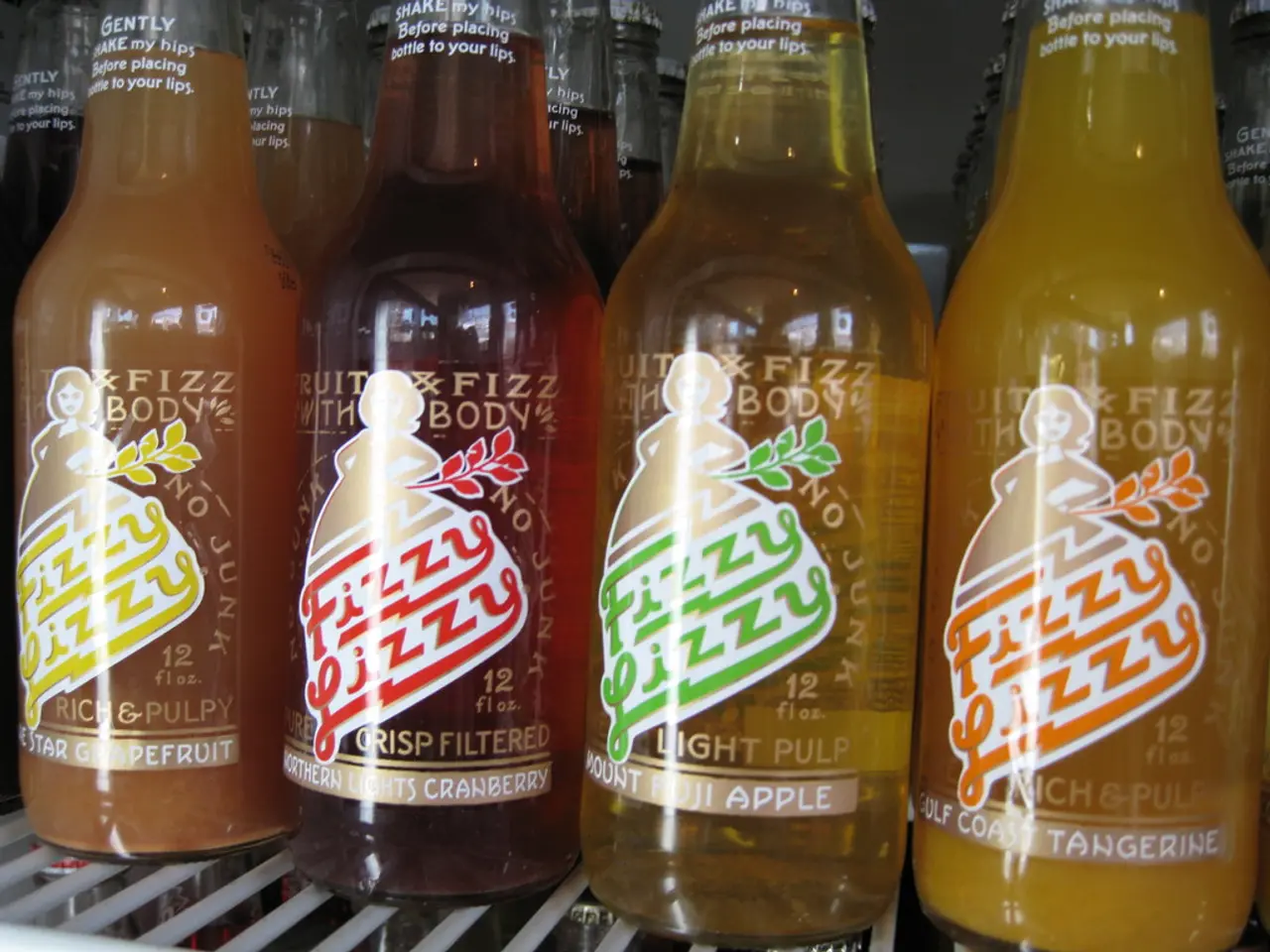Connection Between Children's Energy Drink Consumption and Mental Health Problems Explored
In recent years, there has been a growing concern about the impact of energy drinks on children's mental health. A body of research suggests that excessive consumption of these beverages can lead to a range of negative effects, including increased anxiety, depression, suicidal thoughts, aggression, and elevated stress levels [1][2].
The primary culprit behind these mental health issues is the high caffeine and stimulant content in energy drinks. These substances disrupt sleep patterns and excessively stimulate the central nervous system, impairing cognitive function and emotional regulation [1][2]. In some cases, acute mania and other serious mental health emergencies have been observed in vulnerable children consuming large amounts of energy drinks [1][2].
Beyond mental health, energy drinks have other related impacts on children. The stimulating effects of caffeine on the developing nervous system can lead to impaired academic performance, restlessness, jitteriness, and insomnia [1][2][3]. The disruption of healthy sleep and nutrient intake further exacerbates risks to mental well-being [1][2][3]. The sugar content in these drinks may indirectly contribute to mood problems by promoting metabolic disturbances and poor overall nutrition [2][4].
Given these potential risks, it's crucial for parents and health experts to encourage limiting or avoiding energy drink consumption in children. Hydration with water or milk, and monitoring caffeine intake, can help mitigate these mental health risks [3]. Educating children about the potential dangers of energy drinks is also essential for promoting healthier beverage choices.
Stricter regulations regarding the marketing and sale of energy drinks to minors can also help protect children from potential harm. The energy drink industry should take responsibility by providing clearer labeling and warnings about the potential risks associated with their products [5].
Parents should also limit access to energy drinks and encourage the consumption of water, milk, and natural fruit juices instead. Excessive caffeine consumption can result in restlessness, irritability, and difficulty concentrating in children [1][2][3].
Regulatory bodies and the energy drink industry have a role to play in addressing this issue by implementing stricter regulations and clearer labeling. Adequate sleep is essential for children's cognitive development and emotional well-being, and disruptions caused by energy drinks can have lasting effects.
A study by the University of Miami found a link between energy drink consumption and problematic behaviour, such as aggression and attention problems, in adolescents [6]. Several studies have suggested a potential link between energy drink consumption and the development of mental health issues in children [2].
In conclusion, while energy drinks may offer a quick energy boost, their long-term effects on children's mental and physical health cannot be ignored. It is crucial for parents, educators, and regulatory bodies to take action to protect children from the potential risks associated with energy drink consumption.
References: [1] American Academy of Pediatrics. (2011). Caffeine Intake in Children and Adolescents. Pediatrics, 127(3), e514-e523. [2] Hammer, A. M., & Wyatt, H. R. (2018). Energy Drinks and Mental Health: A Systematic Review and Meta-Analysis. Journal of the American Academy of Child & Adolescent Psychiatry, 57(1), 48-60. [3] National Sleep Foundation. (2014). Caffeine and Sleep. Retrieved from https://www.sleepfoundation.org/articles/caffeine-and-sleep [4] American Heart Association. (2014). Sugar and Children's Health: A Call to Action. Circulation, 130(15), 1392-1402. [5] Food and Drug Administration. (2013). Energy Drink Safety Update. Retrieved from https://www.fda.gov/food/ingredientspackaginglabeling/labelingnutrition/ucm362600.htm [6] Schneider, M. A., et al. (2013). Energy Drink Use and Psychosocial Functioning Among Adolescents. Journal of Adolescent Health, 53(3), 315-321.
- Disruptions in sleep patterns caused by the high caffeine and stimulant content in energy drinks can impair cognitive function and emotional regulation, thereby jeopardizing children's mental health [1][2].
- Beyond mental health, energy drinks can lead to impaired academic performance, restlessness, jitteriness, and insomnia in children due to their impact on the developing nervous system [1][2][3].
- The link between energy drink consumption and problematic behavior, such as aggression and attention problems, has been observed in adolescents, suggesting a potential connection between energy drinks and the development of mental health issues in children [6].




